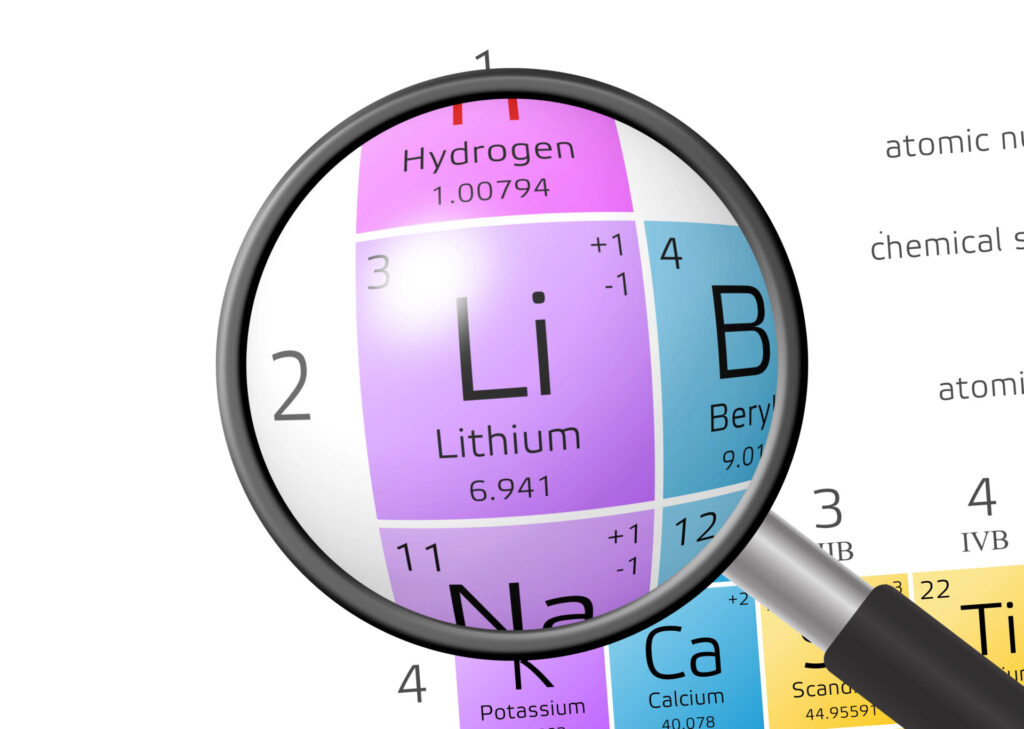Abstract
Recent research identifies a potential role for low-dose lithium orotate (LO) as a neuroprotective trace element in Alzheimer’s disease models. A 2025 Nature study demonstrated that brain lithium deficiency correlated with Alzheimer-like changes, while low-dose LO reversed pathology and improved memory in mice. Emerging human data support cognitive stabilization at micro-dose lithium levels, suggesting a new role for lithium in preventive neuro-nutrition distinct from its pharmacologic use as lithium carbonate (LC).
Introduction
Lithium’s psychiatric use is well-established, but its potential as a trace brain nutrient remains underexplored. LO differs fundamentally from LC in both dose and safety profile, representing a nutritional rather than pharmacologic approach to brain support.
Mechanistic Overview
At the cellular level, Li⁺ modulates GSK-3β, reduces tau hyperphosphorylation, and enhances BDNF expression — key processes in synaptic plasticity and mitochondrial stability. These effects occur at concentrations well below those used in psychiatric therapy, supporting the concept of micro-dose lithium as a nutraceutical neuroprotectant.
Clinical and Epidemiologic Evidence
- Preclinical: Nature (2025) reported reversal of Alzheimer’s pathology and improved cognition in murine models treated with low-dose LO (Aron L et al.).
- Clinical: A 15-month RCT (Nunes MA, J Alzheimer’s Dis., 2013) showed cognitive stabilization with micro-dose lithium (~300 µg/day).
- Population: Higher trace lithium in groundwater correlates with reduced dementia incidence (Fraiha-Pegado J, Nutrients, 2024).
Differentiating LO from LC
Lithium Orotate (LO) is available as a dietary supplement providing approximately 1–5 mg elemental Li⁺ daily. Human toxicology studies report a favorable safety profile at these levels (Murbach TS, Regul Toxicol Pharmacol., 2021).
Lithium Carbonate (LC), conversely, delivers 100–300 mg Li⁺ daily, requires serum monitoring, and carries well-known renal and thyroid risks (Gong R, Kidney Int Rep., 2016). The two should not be conflated in clinical application or product development.
Safety Considerations
LO should be avoided during pregnancy, lactation, and in patients with renal or thyroid dysfunction. Practitioners are advised to remain within nutritional dosing limits and coordinate care when clients are using prescription lithium.
Formulator’s Insight
From a product development standpoint, LO’s potential lies in its integration into mood, cognition, and stress-adaptation formulations. At micro-dose levels, it synergizes effectively with:
- Adaptogens (Rhodiola rosea, Ashwagandha)
- Nootropics (Bacopa monnieri, L-Theanine, phosphatidylserine)
- Mitochondrial cofactors (CoQ10, Acetyl-L-Carnitine, PQQ)
Used responsibly, LO functions as a neuro-nutrient, supporting mitochondrial integrity and cognitive resilience — not as a replacement for pharmacologic lithium therapy.
Conclusion
Lithium orotate’s emerging research profile suggests a new frontier in neuro-longevity and nutritional psychiatry. Its micro-dose neurotrophic actions warrant larger human studies and thoughtful integration into evidence-based functional formulations.
Key References
- Aron L, et al. Nature, 2025 — “Brain Lithium Deficiency and Alzheimer’s Pathology.”
- Nunes MA, et al. J Alzheimer’s Dis., 2013 — “Microdose Lithium Stabilizes Cognitive Decline.”
- Fraiha-Pegado J, et al. Nutrients, 2024 — “Trace Lithium in Water and Dementia Risk.”
- Murbach TS, et al. Regul Toxicol Pharmacol., 2021 — “Preclinical Toxicology of Lithium Orotate.”
- Gong R, et al. Kidney Int Rep., 2016 — “Lithium and the Kidney.”
- Kory P, Substack – The Forgotten Elements, 2025 — “Micro-Lithium and Brain Aging.”





